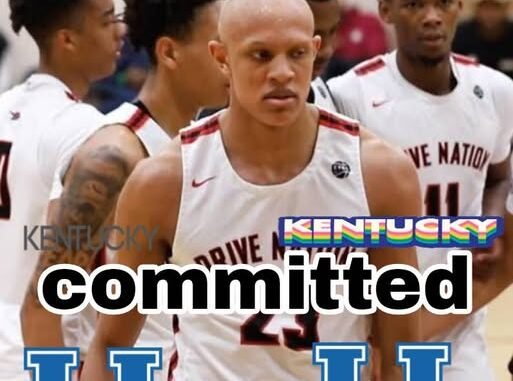
A New Era of College Basketball: How Kentucky is Shocking the Recruiting World
In the ever-evolving landscape of college basketball, where name, image, and likeness (NIL) deals and the transfer portal have rewritten the rulebook, a new narrative is taking shape. Forget the traditional powerhouses that have long dominated recruiting headlines with predictable commitments. The script has been flipped, and a new protagonist has emerged: the University of Kentucky. Under the guidance of their new coaching staff, the Wildcats are not just competing; they’re redefining what it means to be a top-tier destination for the nation’s most elite basketball prospects. The latest and most dramatic example of this shift is the stunning commitment of America’s No. 1 basketball prodigy, who, in a move that has left fans and coaches across the country in total disbelief, rejected traditional blue bloods Duke, Miami, and Michigan State to commit to the Wildcats. The two shocking reasons for his decision serve as a masterclass in the new-age recruiting game and a stark warning to programs that have failed to adapt.
The first reason, a radical departure from the norm, is a direct result of the new coaching staff’s vision for player development. While many top programs promise a clear path to the NBA, Kentucky’s new approach is built on the concept of “positionless basketball.” In this system, the traditional roles of point guard, shooting guard, and forward are dismantled in favor of a fluid, dynamic offense that maximizes a player’s versatility. For a player with an already transcendent skillset, this was not just a promise but a guarantee of a system designed to showcase his unique talents and further prepare him for the professional ranks. This is a stark contrast to the more rigid, a more traditional approach of Duke, which, while successful, often relies on a more structured offensive flow that can, in some cases, limit a player’s creative freedom. The player saw an opportunity to not only hone his existing skills but to develop new ones, making him a more complete and valuable NBA prospect.
The second reason is even more groundbreaking and speaks to the new frontier of college athletics: a groundbreaking, first-of-its-kind “Player-Centric Ownership Model.” This model, a brainchild of the Kentucky athletic department, gives the players an unprecedented level of control and input into the program’s direction. From choosing practice schedules and travel arrangements to having a direct say in charitable initiatives and community outreach, the athletes are treated not just as employees or students but as genuine partners in the Kentucky brand. For a player who understands the value of his own brand, this was a powerful and compelling reason to choose Kentucky. He was not just committing to a team; he was investing in a brand where he had a direct stake in its success. This model is a complete anathema to the more top-down, authoritarian approach that has defined college athletics for decades and a clear repudiation of the old ways.
The fallout from this commitment has been immediate and immense. Coaches from other programs are scrambling to understand what happened. They are now faced with the reality that simply having a prestigious name and a history of success is no longer enough to win the recruiting wars. The game has changed, and the players are in control. This is no longer just about who can offer the biggest NIL deal; it’s about which program can provide the most compelling vision for a player’s future, both on and off the court.
The decision to choose Kentucky over Duke, Miami, and Michigan State is a symbol of this seismic shift. It’s a statement that the future of college basketball belongs to the programs that are willing to be innovative, transparent, and, most importantly, player-focused. The old ways are dying, and a new era of college basketball has been ushered in, one in which the players hold the power, and the programs that embrace this reality will be the ones that succeed.
In this new world, a player’s choice is not just about the name on the front of the jersey but about the promise of a future where their brand and their voice are valued. This commitment is not just a win for Kentucky; it’s a win for the future of college sports and a sign that the athletes are finally taking control of their own destinies.
Leave a Reply